Politics & Economy
“I Want to Tell My Story”: Journalist Nguyen Tu and the Price of Courage (Part 1)
Published on
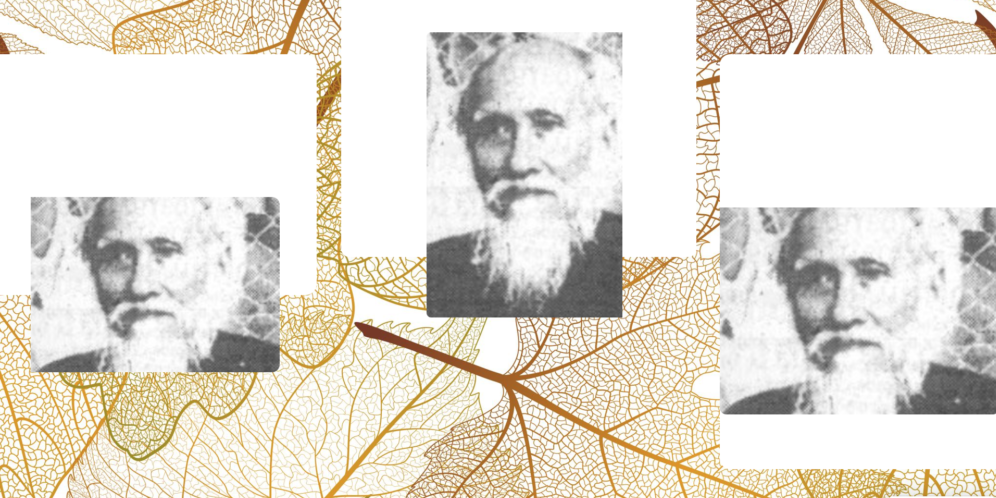
“I Want to Tell My Story”: Journalist Nguyen Tu and the Price of Courage (Part 1, Part 2, Part 3)
I drove my car into the parking lot of the small apartment complex in Alexandria, Virginia, where Nguyen Tu lived. The brick building, much like my friend, was old and weathered but still functional. I turned off the engine and sat for a moment, thinking about the questions I wanted to ask him. This was the ninth time in the last year that I had interviewed him. He never told me why he kept agreeing to see me. Probably the journalist in him; he respected the effort to get the story even if he did not want to be a part of it.
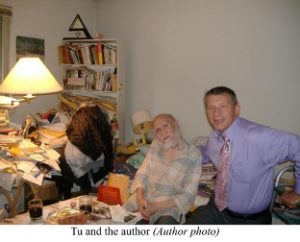 During his life, Tu had been a fighter, a wanderer, a government bureaucrat, a journalist, and a refugee. As I learned about the incredible events he had lived through, I repeatedly asked him to write his memoirs, but he kept refusing. “I know too much about people and events,” he said, “and I lost my country. Who am I to tell history?” I always shook my head, unable to bridge the cultural divide. Perhaps I was too American to understand his reluctance. He had witnessed many major events during the modern evolution of his country. To let his remarkable journey die with him was a terrible loss for both history and the Vietnamese people. I could not let that happen.
During his life, Tu had been a fighter, a wanderer, a government bureaucrat, a journalist, and a refugee. As I learned about the incredible events he had lived through, I repeatedly asked him to write his memoirs, but he kept refusing. “I know too much about people and events,” he said, “and I lost my country. Who am I to tell history?” I always shook my head, unable to bridge the cultural divide. Perhaps I was too American to understand his reluctance. He had witnessed many major events during the modern evolution of his country. To let his remarkable journey die with him was a terrible loss for both history and the Vietnamese people. I could not let that happen.
Despite his refusal to write his memoirs, I kept returning to his cramped apartment, jotting down one astounding story after another. His place overflowed with stacks of newspapers, books, and magazines. Some might call Tu a hoarder, but he preferred to think of the towering mounds as his paper-based research assistant for the small articles he still wrote for various Vietnamese-language newspapers in the United States.
As I got out of my car and walked to the building door, I did not know that today, October 19, 2009, would be different. As I was leaving his apartment after our talk, he grabbed my arm. Pausing for a moment, he looked at me and said, “I want to tell my story.” The journalist in him had finally triumphed over his Buddhist reserve. I left in high spirits, unaware that this would be the last time I would see one of the most fascinating people I have ever met. Telling history, I have learned, is never simple.
***
Nguyen Dinh Tu, usually called Nguyen Tu or Tu Hai by his close friends, was born in Hanoi on December 26, 1924. He was a highly respected battlefield correspondent and assistant editor for Chinh Luan, South Vietnam’s most influential newspaper. He never married, and he had no children. He wanted to remain completely independent, free to pursue journalism, his life’s calling. His parents were wealthy, and they owned a big villa, half a street in Hanoi, over a dozen buildings, and a 600-hectare farm in Tuyen Quang province. He had one older brother, who died as a child. His parents also passed away when he was a teenager, a tragedy that forced him to learn to take care of himself from a young age.
His mother died when he was sixteen years old. Tu loved her immensely, and he sank into a depression so deep that he became ill for a year and did not attend school. To lift him out of his sadness, his father sent him to live in a Buddhist pagoda. His family had been Buddhists for generations. When he was a child, his father would invite a well-respected monk to the house several times a month to discuss Buddhism. He allowed Tu to attend the discussions to introduce him to the religion. His father just wanted him to listen. Tu would not understand everything now, his father said, but he would understand later in life. Fortunately, the lessons he learned from these talks and the quiet life of the temple calmed him, and he left there more mature. Buddhism and the monk’s teachings also gave him the serenity to endure the hardship of 13 years in prison after the end of the war.
His parents provided him with an excellent education. Looking back, he realized he owed his father everything. His father shaped his life and prepared him to face the harsh reality of Vietnam. He wanted Tu to write well, so he taught him Chinese characters, and he made Tu study Latin for six years and ancient Greek for four. At the pagoda, he became good friends with another well-educated monk. His father and the monk inspired a thirst for knowledge in him. He would go to the library every Sunday and was always the last to leave.
Here is where he first became aware of Communism—from reading a book. Once when he went to the front desk, he saw a book on Marxism laying there. He asked the clerk if he could see it, but the clerk said no, it was forbidden. Tu pleaded with him, and finally the clerk relented. But he made Tu promise that he would tell no one and would bring it back within a week. The book had a chapter on the French colonies, and it discussed Vietnam. The book said that all French colonies should revolt and work with Moscow to defeat colonialism. He quickly realized this would only replace the French with the Soviets, and he opposed Communism for the rest of his life.
Tu received an excellent French education in Hanoi. In 1939 at the age of 15, he enrolled in the best French high school in Indochina, the Lycée Albert-Sarraut, founded in 1919. The Vietnamese elite and the local French population sent their children there. All his teachers were from Paris and had graduated from major universities. The school set high academic standards, and his teachers opened his mind to democracy and to the ideals of the French Revolution: liberty, independence, and most importantly, human rights.
He became close to several French pupils, but attending Albert-Sarraut created a contradiction in him. The French had taught him these important concepts and had given him a great education, but since they wanted to keep Vietnam a colony, liberating his country meant he would have to fight and kill his friends. This, Tu said, was the difference between him and the Communists. His immersion in three cultures—Chinese Confucianism from his father, French liberalism from his teachers, and Buddhism from the monks—enabled him to see the good in the French while still wanting to liberate his country.
Since he believed that Communism was wrong for Vietnam, he would seek another philosophy to govern his country. Many years later, he had friends from the north who said to him, “Tu, you were right, we were wrong to go with the Communists.” He was heartbroken that so many of his generation were stuck in Hanoi, unable to escape. He carried this sadness within him all of his life.
Joining the Dai Viets and fighting the Viet Minh
Tu’s father died in 1943. After he passed, Tu gave the farm to the peasants who lived there. He stayed in the villa, but he also gave away the buildings in Hanoi. He did not care anymore; his beloved family was gone. Yet he was determined to free his country, so he continued his studies. Consequently, in Hanoi in late 1944, he joined the Dai Viet Quoc Dan Dang (Greater Vietnam Citizens Party), commonly called the Dai Viets. The leader of the party, Truong Tu Anh, who went by the alias Mr. Phuong, administered Tu’s oath. Although Tu only spoke to him twice, when he went to Saigon in 1948, the southern Dai Viets treated him as if he were “some special envoy” because he had been picked by Anh.
The Communists saw the Dai Viets as competitors for power, and they arrested Tu in Hanoi in the summer of 1945. They accused him of being an anti-communist, and they tortured him and then sentenced him to death. The French typically used 60 watts of electricity to torture people, but the Communists used 120 on him. He was kept in solitary confinement for three weeks at Hoa Lo prison and then was sent to the city of Thai Nguyen to be executed.
The town was the capital of the Việt Nam Độc Lập Đồng Minh Hội, usually called the Viet Minh, a coalition of Communist and Nationalist organizations formed in 1941 to fight for Vietnam’s independence from France. However, after Tu spent several months at Thai Nguyen, the Communists suddenly released him, saying, “Your file is clear.” Despite the torture, he had not confessed to being a member of the Dai Viets. Unable to prove the charge, they freed him.
He was the only male out of 200 men who was released. Some two dozen women were also incarcerated there. Tran Van Giau, a well-known Communist cadre, gave political education speeches. Tu noted that Giau “talked very well.”
After prison, he returned to Hanoi shortly after Vietnam had declared independence from France on September 2, 1945. A Dai Viet friend told him to leave the city and join a new military school that had been established by the Nationalists. In the fall of 1945, the two main anti-communist political parties, the Dai Viets and the Việt Nam Quốc Dân Đảng (VNQDD), had formed a united front to protect themselves against the growing Communist dominance of the Viet Minh.
The Nationalists established the Trần Quốc Tuấn Military Infantry School at Chapa, a village near the town of Lao Cai close to the Chinese border. Tu joined about 300 young men, many of whom had also been recruited from Hanoi. Most were well-educated and wanted to fight the French, but they also were against the Communists. “The men were very brave,” Tu said, “and many lied to their parents to join.” At the camp, he met Bui Diem, the future South Vietnamese ambassador to the United States, and they became close friends for the rest of their lives.
The school was organized into three companies, A, B, and C. Tu was part of Company A. In the beginning he trained with a wooden gun, but later he was given a real weapon. Only about 75 men received a weapon, so they had to share. One day Tu would have the weapon, the next day he gave it to another man, and so forth. They had little ammunition and only one old French 75mm cannon.
They were trained by former Japanese military officers. The Japanese included one colonel and four captains. Tu had no idea where they came from or how they got there. They were good officers, but they had to use translators because they did not speak Vietnamese. The Japanese took Vietnamese names, but he did not know their real names. They called the colonel Cao Hung, which loosely translates as High or Tall Hero. They also had a Vietnamese lieutenant named Vinh who had been in the French army. Vinh took care of the administrative matters while the Japanese did the training.
The Japanese gave them two manuals, which were translated into Vietnamese. One was on infantry tactics, and the other was a handbook on basic soldier skills, such as saluting and marching. The Japanese trained them exactly how they had been trained. The Japanese taught them small-unit infantry tactics, but right from the beginning they emphasized strategy, which surprised Tu. The training was brutal in the mountains that surrounded their camp, but no one deserted.
Tu graduated in the spring of 1946. There was no ceremony or pinning on rank, nor did he care about any honor afforded by the academy to its graduates because he and his classmates were full of revolutionary ideals. In April, the school planned to seize a Communist outpost near the town of Yen Bai. The Japanese officers reviewed the plan and approved it, but they did not participate; they wanted the Vietnamese to do it themselves.
Tu was a platoon leader in the assault, but they only had enough weapons and ammunition for part of one company to conduct the attack. The rest stayed behind to guard their base area. They attacked at night. He recalled seeing the enemy fire and shooting back. It was a tough fight, and they won, but one of Tu’s friends was killed. He had gone to the same school as Tu but was one year younger. It was a great loss for Tu as he viewed his fallen comrade as a younger brother. Tu was hit twice, a graze in the shoulder and on the right hip. The only medicine was diluted salt water to clean the wound. The Japanese reviewed the assault with them to improve the military training.
The internal war between the Nationalists and the Communists heated up in July 1946 when the Viet Minh Public Security forces stopped an attempted overthrow of the government in Hanoi by the Dai Viets. The Communists used this event to launch attacks on the Nationalist strongholds. Many fell quickly. Although Tu and the armed members of his school had remained camped near Yen Bai, by October 1946, the town was surrounded. After many Communist assaults, the city fell. Several of the Japanese officers were killed, but the colonel and two captains survived. The colonel went back to Japan years later, but Tu did not know what happened to the other officers.
Tu’s unit retreated to Lao Cai, but the Communists moved against the town. When the enemy was about 30 kilometers away, and with barely any ammunition and little money to pay the local people for rice, they decided to disband. Many of his friends went to China, while others decided to return home. Tu declined his friends’ invitation to join them in China. He chose to stay in Lao Cai and to watch the Communists enter the town to see how they would behave. This would tell him who they really were. “If you want to fight someone, you should know them for yourself, not by rumors,” he said. Despite his earlier prison stay, he was not afraid. He bought a dinner with the last of his money.
In November 1946, the Communists captured Lao Cai, which ended the internal battle with the Nationalists. The Communists gathered all the people in town to make propaganda. Tu watched all night and noticed that when they spoke about Ho Chi Minh, they talked like Nationalists, not like Communists. However, they also claimed that “the Chinese people are our ally.” This was the first time he had heard this or anything about Mao Tse Tung, the Chinese Communist leader. The Communists announced that the next day, a train would come and take anyone to Hanoi who wanted to go. One only had to show up in the morning to get a pass.
In the morning, some of Tu’s fellow soldiers signed their names to get a pass. Tu warned them not to do it. He knew that if he signed his name, he would be arrested by the Communists. Believing the train would be very crowded, Tu planned to sneak on. With so many people, he knew they could not check everyone. The train stopped at Lao Cai at noon, and Tu got on board without being caught. He then looked out his window and saw his friends being arrested. “I felt like I was the only survivor of Lai Cai,” he said.
Returning to Hanoi and becoming a journalist
Leaving Lao Cai, Tu returned to Hanoi. He arrived a few days before the French launched an attack on December 19, 1946, to retake the city from the Viet Minh. This assault began the First Indochina War. He felt safe in the city as he had friends who would protect him and feed him, but the wounds he had suffered at Yen Bai had not yet healed, so he stayed hidden. When the French conquered the city, he emerged from hiding.
Although he had no money and no job, he had wanted to become a journalist from a young age. His mother had pressed him to become a doctor so he could take care of the poor. She did not want him to become a civil servant. Eventually his father told her to let him make his own decision. What sparked his interest in journalism were books written by French reporters about World War I. In 1945, he had been hired by French journalists to help them find news since they did not speak Vietnamese, so he was able to get a job writing for the French newspapers when he returned to Hanoi from Lao Cai. Occasionally he also wrote for the French wire service Agence France-Presse when it briefly called itself the French Information Office during World War II.
At a Dai Viet meeting in Hanoi, he met Dr. Dang Van Sung, the man who would help him accomplish his life’s mission. Sung was a medical doctor who had been personally recruited by Dai Viet leader Truong Tu Anh. Sung told Tu that he had seen him at the camp near Yen Bai, and he wanted to know about his cousin, who happened to be one of the people Tu had tried to talk out of signing his name for the train at Lao Cai. He and Sung became good friends, and when Sung announced in the late summer of 1947 that he was creating a newspaper in Hanoi, he asked Tu to join him. Tu agreed, and he recruited two friends to help. All four of the staff lived in the same house. It was tough, Tu remembered, to get enough rice to feed them all.
The biweekly paper was called Thanh Nien (Youth). Sung was the publisher, editor, owner, and writer. According to Tu, “The first issue sold out and sent shock waves through Hanoi, but it was expensive to print, and we made little money. Plus we had to find a printer who would who do the work first and get paid later.” Despite the difficulties, for the first time in his life, Tu felt free to write and think what he wanted. The French, however, shut them down in May 1948.
With the paper closed, Tu decided to leave Hanoi and track down Truong Tu Anh, who had disappeared in December 1946. His newspaper friends agreed that it was a good idea, as Anh’s disappearance had badly hurt the Dai Viet party. The Communists would later claim that their Public Security forces had arrested Anh on December 16, 1946, in the Quang Ba area of Hanoi. When the French attacked Hanoi three days later, the Communists executed Anh and disposed of his body. Although French security was tight and he had little money, Tu snuck into Communist territory looking for the missing Dai Viet leader. He never found any evidence as to what happened to Anh. The Communists had concealed their deadly deed well.
He did, however, find many Dai Viet party members who were hiding from the Viet Minh. With Anh missing, they all asked him, “What should we do now?”
“Return to Hanoi,” Tu said. “otherwise the Communists will eventually arrest you.”
But Hanoi, they complained, was under French rule.
“Yes,” Tu told them, “but the French will not kill you, and it is not a surrender.”
Although Tu fought both the Communists and the French, he felt that the Communists were the greater of the two enemies. He recommended to everyone that they fight the Communists first and then the French: “We have to choose our enemies. We cannot fight them both at the same time.” He believed the Communists were a rising force while the French were declining and would never win the war. Because of this stance, some friends accused him of being a turncoat, the same friends who would later regret joining the Communists.
Unable to find Anh, and with the French supporting former emperor Bao Dai as an alternative anti-communist Vietnamese government, Tu went south to Saigon in late 1948 and stayed there until 1953. While in Saigon, he joined Bao Dai’s government in the Ministry of Youth. Tu believed the best way to beat the Communists was to convince the Vietnamese youth that Communism was not the solution for their country.
In 1953, the Vietnamese governor in Hanoi asked him to come back to help pacify the Red River Delta. The governor needed cadre to assist in this effort. At first, Tu refused, but the governor sent his deputy to Saigon to ask Tu to join him. Tu agreed, and he flew back to Hanoi to help set up a training camp for young people to protect the countryside. He stayed there for a year until the signing of the Geneva Accords in July 1954 that divided Vietnam into two separate states. With the Communists about to enter Hanoi, he went to Haiphong, boarded a U.S. destroyer helping to move people south, and he returned to Saigon.
You may like

Reflections on New Era of National Rise by Vietnam General Secretary Tô Lâm

Of Space & Place: On the Nationalism(s) of Tuan Andrew Nguyen’s “Our Ghosts Live in the Future”

Postwar Music In Vietnam And The Diaspora

Translation: The Decision in 2013 of the Central Committee of the Communist Party of China on Certain Major Issues Concerning Comprehensively Deepening Reform

Thủ Đức Demonstration High School: A Modern Educational Policy and Teaching Method of the Republic of Vietnam

Vietnam’s unresolved leadership question

Rethinking History and News Media in South Vietnam

“The Vietnam War Was an Unwinnable War”: On Factuality and Orthodoxy

Democracy in action: The 1970 Senatorial elections in the Republic of Vietnam (Part 1)

Pandemics and Morality: Lessons from Hanoi
US-VIETNAM REVIEW
-

 Politics & Economy4 years ago
Politics & Economy4 years agoVietnam’s unresolved leadership question
-
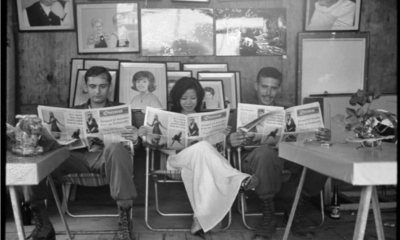
 Politics & Economy2 years ago
Politics & Economy2 years agoRethinking History and News Media in South Vietnam
-
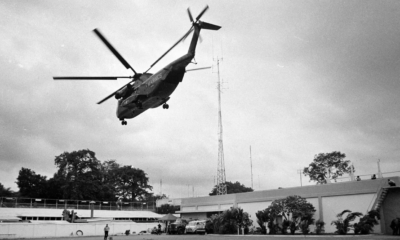
 After 19751 year ago
After 19751 year ago“The Vietnam War Was an Unwinnable War”: On Factuality and Orthodoxy
-

 ARCHIVES5 years ago
ARCHIVES5 years agoDemocracy in action: The 1970 Senatorial elections in the Republic of Vietnam (Part 1)
-

 Society & Culture5 years ago
Society & Culture5 years agoPandemics and Morality: Lessons from Hanoi
-

 Politics & Economy4 years ago
Politics & Economy4 years agoThe Limit to U.S.-Vietnam Security Cooperation
-

 Politics & Economy5 years ago
Politics & Economy5 years agoNational Shame: How We (Americans) can learn from Nguyễn An Ninh
-
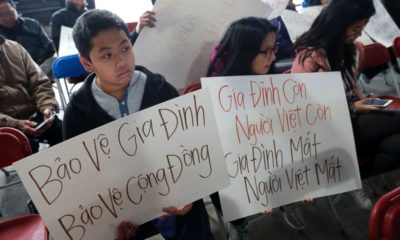
 Vietnamese-America4 years ago
Vietnamese-America4 years agoDeporting Vietnamese Refugees: Politics and Policy from Bush to Biden (Part 1)


